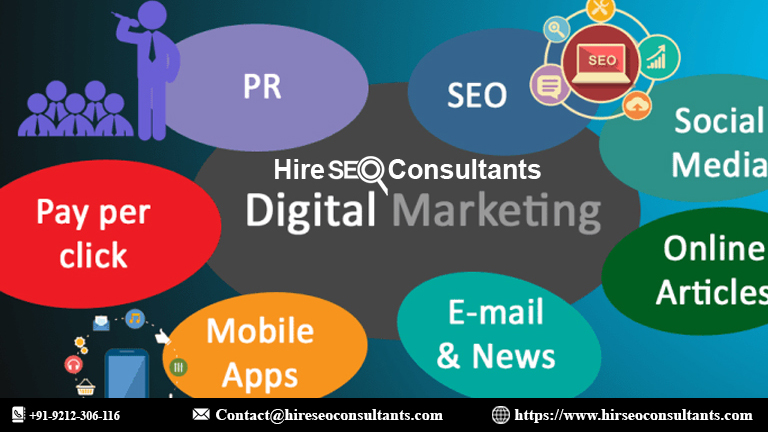What to Look for in a Reliable Web Hosting Provider | Key Factors to Consider
Discover the essential features of a reliable web hosting provider, including speed, security, uptime, and customer support for optimal website performance.

What to Look for in a Reliable Web Hosting Provider
About hostings focuses on secure and scalable hosting options for your site. Choosing a reliable web hosting provider is one of the most critical decisions you’ll make for your online presence. Whether you're building a new website or migrating an existing one, the hosting provider you choose can significantly impact your website's speed, uptime, security, and overall performance. With numerous options available, selecting the right provider can feel overwhelming. However, by understanding the key features to look for, you can make an informed decision that best supports your business or personal website.
In this blog, we'll explore the essential factors to consider when choosing a reliable web hosting provider and answer some frequently asked questions to guide your decision-making process.
1. Uptime Guarantee
Uptime refers to the amount of time a website is accessible and functional online. It's one of the most important factors to consider when choosing a hosting provider. If your website is down for long periods, you risk losing customers, revenue, and even credibility.
What to Look For:
A reliable web hosting provider should offer an uptime guarantee of at least 99.9%. Some providers even offer a 100% uptime guarantee, but realistically, no provider can guarantee 100% uptime due to factors like server maintenance or unforeseen issues. However, 99.9% uptime means your website will only be down for a few hours per year, which is an acceptable threshold for most businesses.
Why It Matters:
High uptime ensures that your website remains accessible to visitors, preventing potential loss of business opportunities. If your website experiences frequent downtime, it can negatively affect user experience and hurt your search engine rankings.
2. Speed and Performance
Website speed is a critical factor for user satisfaction and SEO. Slow-loading websites can drive potential customers away, while fast-loading websites tend to rank better on search engines. In fact, Google has confirmed that page speed is a ranking factor for search results.
What to Look For:
A reliable hosting provider should have solid-state drives (SSDs) instead of traditional hard disk drives (HDDs) because SSDs provide faster read and write speeds. Additionally, look for hosting providers that offer content delivery networks (CDNs), caching options, and optimized server configurations to speed up website load times.
Why It Matters:
Speed plays a crucial role in providing a positive user experience. If your website loads too slowly, visitors are more likely to leave and choose your competitors. Fast-loading websites also tend to have higher conversion rates and better engagement metrics.
3. Security Features
Security is another vital aspect when selecting a hosting provider. A secure website not only protects your data but also builds trust with your users. In today’s online environment, cybersecurity threats like malware, hacking attempts, and DDoS attacks are common, so it's important to choose a host that takes security seriously.
What to Look For:
A reliable hosting provider should offer the following security features:
-
SSL certificates: These encrypt data transmitted between your website and its visitors, ensuring secure communication.
-
Firewalls: Protect your website from unauthorized access and attacks.
-
DDoS protection: Safeguards your website from distributed denial-of-service (DDoS) attacks.
-
Regular backups: Ensure that your website data is regularly backed up so it can be restored in case of a disaster.
-
Malware scanning and removal: Regular scanning to detect and remove harmful software or malicious code.
Why It Matters:
Security is essential for protecting sensitive data, especially if you handle customer information like credit card details. A security breach can result in significant financial losses, reputational damage, and legal consequences. By choosing a hosting provider with robust security features, you can prevent most common attacks and keep your website safe.
4. Scalability
As your website grows, so too will its needs. A hosting provider that offers scalable hosting plans ensures that you can easily upgrade your resources without migrating to a new provider.
What to Look For:
Look for a provider that offers flexible plans, including VPS (Virtual Private Server) and dedicated hosting options, in addition to shared hosting. Cloud hosting services are also highly scalable, allowing you to increase or decrease resources as needed.
Why It Matters:
Scalability ensures that your website can handle increased traffic or resource demands without performance degradation. If your website experiences growth, a scalable hosting provider allows you to add more server resources seamlessly, preventing downtime or slow loading times during peak traffic periods.
5. Customer Support
Good customer support is essential for resolving any issues or questions you may have about your hosting. A reliable hosting provider should offer multiple channels of support, including phone, email, and live chat. Look for a host that provides 24/7 support to ensure you're never left stranded when problems arise.
What to Look For:
The best hosting providers offer responsive, helpful, and knowledgeable customer support. Check online reviews and testimonials to gauge the quality of customer service, and ensure the provider has a solid track record of resolving issues quickly.
Why It Matters:
Technical problems can arise at any time, and you need to know that support is available whenever you need it. Whether you need assistance with server configuration, billing issues, or resolving performance problems, prompt customer support can minimize downtime and keep your website running smoothly.
6. Pricing and Value for Money
While price is an important consideration, it shouldn’t be the sole factor in choosing a hosting provider. It's important to understand what you're getting for your money and whether the hosting plan provides the features you need to run your website effectively.
What to Look For:
Choose a hosting provider that offers competitive pricing while delivering the essential features required for your website’s success. Watch out for hidden fees, such as renewal rates, extra charges for backups, or additional security features.
Why It Matters:
Choosing a cheap hosting provider may result in poor performance, limited customer support, or insufficient security. On the other hand, an expensive provider may offer unnecessary features that you don’t need. The key is to find a provider that offers good value for your budget and business needs.
7. Backup and Restore Options
Having a reliable backup system is essential for recovering from data loss or website issues. A trustworthy hosting provider should offer automated daily or weekly backups, making it easy to restore your website to a previous state if something goes wrong.
What to Look For:
Look for hosting providers that offer automated backups as part of their service. Additionally, ensure that you can easily restore backups without needing to contact customer support.
Why It Matters:
Backups are essential in case of website crashes, accidental file deletions, or data corruption. Regular backups ensure that you can quickly restore your website without losing valuable content or functionality.
8. Hosting Features and Add-ons
Beyond the basics, it’s essential to consider any additional features or add-ons that the hosting provider offers. These features can enhance your website’s performance, security, and user experience.
What to Look For:
-
One-click app installations: Providers that offer easy installation of content management systems (CMS) like WordPress, Joomla, and Drupal can save time and effort during the setup process.
-
Free domain registration: Some hosts offer free domain registration for the first year, which can save you money.
-
Email hosting: Look for a provider that offers email accounts with your hosting plan, such as custom domain email addresses (e.g., info@yourbusiness.com).
-
Developer tools: If you're a developer, ensure the host provides the tools you need, such as SSH access, FTP, and staging environments.
Why It Matters:
These additional features can enhance your website’s functionality and streamline the process of managing and maintaining your site. They also provide better value for money and can improve your site’s efficiency.
FAQs
1. How do I know if a web hosting provider is reliable?
Look for providers that offer a high uptime guarantee (99.9% or higher), solid customer support, strong security features, and scalability options. Reading customer reviews and testimonials can also give you insight into the provider's reliability.
2. What is the best type of hosting for a small business?
For small businesses, shared hosting is often sufficient if you're just starting out. However, if you anticipate growth, consider VPS hosting, which offers more resources and flexibility without the high cost of dedicated hosting.
3. How important is customer support in choosing a hosting provider?
Customer support is extremely important. Having 24/7 access to knowledgeable and responsive support staff can resolve any issues quickly and prevent downtime.
4. Can I change my hosting provider later if my business grows?
Yes, most hosting providers allow you to upgrade your hosting plan as your business grows. However, the process of migrating to a new host can be time-consuming, so it’s best to choose a provider that offers scalable solutions from the start.
5. What are the risks of not choosing a reliable hosting provider?
Choosing an unreliable hosting provider can result in poor website performance, frequent downtime, security vulnerabilities, and limited customer support. All of these factors can harm your reputation, reduce traffic, and impact conversions.
Conclusion
Selecting a reliable web hosting provider is crucial for the success of your website and online business. By focusing on uptime, speed, security, scalability, customer support, and pricing, you can make an informed decision that ensures your website performs optimally and remains secure. A reliable hosting provider is an investment in the future of your online presence, providing the foundation you need to grow and succeed. A technologist understands both the technical and strategic aspects of technology.
What's Your Reaction?



















